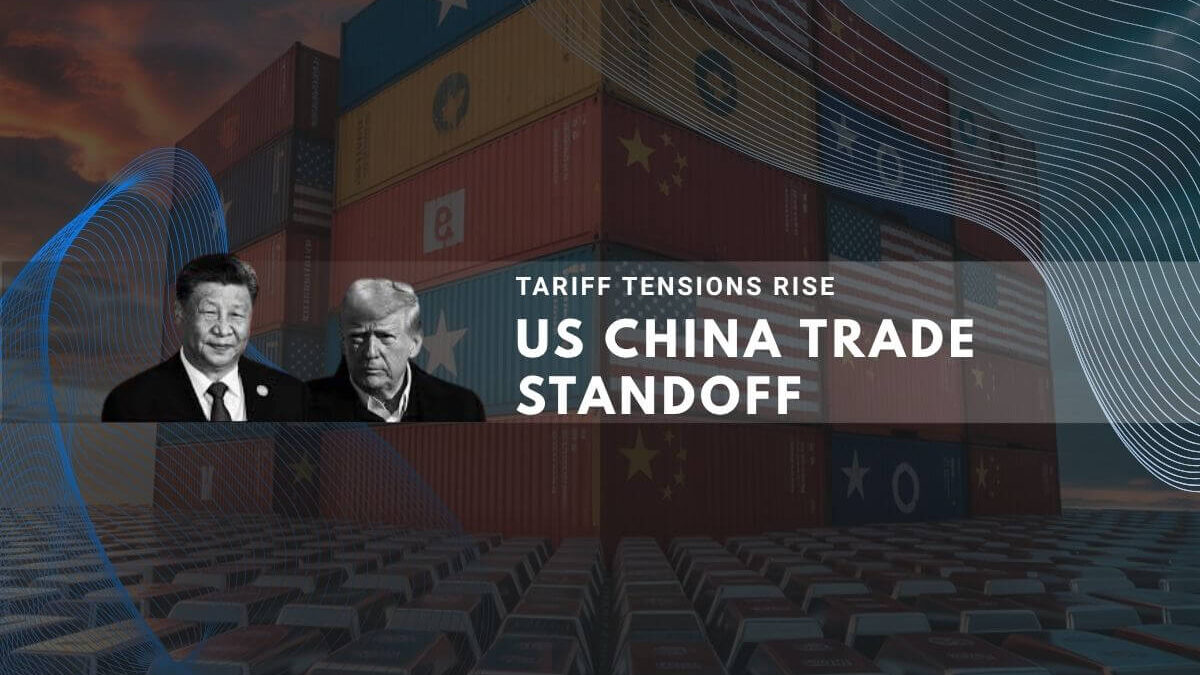China warned the United States on Sunday that it will take countermeasures to protect its interests if President Donald Trump proceeds with his threat to impose an additional 100 percent tariff on Chinese imports. China warns US officials that Trump 100 percent tariffs could escalate trade tensions. China responds to the Trump tariff and rare earth export controls, signaling that it will adopt necessary measures to defend its rights while maintaining global trade stability.
China Accuses US of Double Standards
Beijing responded to Trump’s tariff threat by accusing Washington of practicing double standards in trade policy. An unnamed spokesperson from China’s Ministry of Commerce stated in an online announcement on Sunday that the US tariff declaration clearly illustrates such hypocrisy.[1][2]
The spokesperson emphasized that if the United States continues down this path, China will firmly adopt necessary measures to defend its legitimate rights and interests. Despite the strong rhetoric, China has not yet imposed new retaliatory tariffs on American products.[3]
The ministry noted that the United States has escalated its economic actions against China since September, actions that have harmed Chinese interests and damaged the atmosphere of economic trade talks between the two sides.[4]
Trump Announces 100 Percent Tariff on Chinese Goods
On Friday, October 10, President Trump declared that the United States would implement new tariffs of 100 percent on imports from China, effective November 1, which would be in addition to existing tariffs.[5][6] The announcement came alongside new export controls on any and all critical software starting the same date.
Trump justified the move as retaliation against what he described as extraordinarily aggressive new restrictions China imposed on rare earth mineral exports. He also suggested the possibility of canceling a scheduled meeting with Chinese President Xi Jinping at the upcoming Asia-Pacific Economic Cooperation summit in South Korea.[7]
In a post on Truth Social, Trump stated that China had taken an extraordinarily aggressive position on trade by sending a notably hostile letter to countries worldwide. He characterized the Chinese export controls as a long-planned strategy and a significant breach of international trade norms.[8]
China Tightens Rare Earth Export Controls
On Thursday, October 9, China announced stricter export controls on essential rare earth metals through announcement number 61 of 2025. The new measures expand export restrictions to five additional rare earth metals, bringing the total to 12 of the 17 rare earth elements.[9]
Expanded Restrictions on Critical Minerals
The newly restricted metals include holmium, erbium, thulium, europium, and ytterbium. These join seven previously controlled elements: samarium, gadolinium, terbium, dysprosium, lutetium, scandium, and yttrium.[10] Most of the new export control measures are set to take effect on December 1.
China also imposed restrictions on the export of specialized technological equipment used for refining rare earth metals. Foreign companies must now secure special licenses from the Chinese government to export rare earth magnets and certain semiconductor materials containing at least 0.1 percent of heavy rare earth metals.[11]
Strategic Importance of Rare Earths
China supplies approximately 70 percent of the world’s rare earth materials, which are essential for manufacturing smartphones, electric vehicles, military equipment, and renewable energy technologies.[12] Beijing has consistently leveraged these critical minerals as a strategic tool during trade negotiations with the United States.
Impact on Global Trade Relations
The escalating trade conflict represents the most significant strain in US-China relations in six months, raising doubts about whether the fragile economic détente achieved earlier this summer can endure.[13] Earlier this year, both nations engaged in a series of escalating tariffs before eventually agreeing to reduce some duties through careful negotiations.
Currently, most products imported from China into the United States are already subject to tariffs of 30 percent, enacted by Trump under claims that Beijing has been complicit in the fentanyl trade and engaged in unfair trade practices.[14] In contrast, China’s retaliatory tariffs remain at 10 percent. The effective tariff rate on Chinese imports stands at around 40 percent, according to analysts from Wells Fargo Economics and the Federal Reserve Bank of New York.[15]
China Defends Export Controls as Legitimate
The Chinese Ministry of Commerce defended the rare earth export controls as legitimate efforts to better safeguard world peace and regional stability. Beijing argued that applications for goods that could be utilized in military or terrorist activities will face rejection.[16]
China also accused the United States of frequently broadening the definition of national security and misusing export controls. The ministry highlighted that the US control list encompasses over 3,000 items, while China’s list includes fewer than 1,000.[17]
Additional Retaliatory Measures
Shortly after tightening export controls, China announced it would begin charging US vessels a special port fee for docking at Chinese ports starting October 14. This move directly countered Washington’s decision to impose fees on Chinese ships arriving at US ports, effective the same date.[18]
On October 10, China also opened an antitrust investigation into Qualcomm, one of America’s most important semiconductor companies, regarding its acquisition of Israeli chip designer Autotalks. The probe will examine whether Qualcomm violated China’s antitrust laws by failing to properly declare details of the deal finalized in June 2025.[19]
Uncertainty Over Presidential Meeting
The status of a potential meeting between Trump and Xi Jinping remains unclear. Trump initially stated on Truth Social that there now seems to be no reason for the meeting to occur. However, he later clarified to reporters at the White House that he had not canceled the meeting and would assume it might still happen.[20] Beijing has yet to confirm the meeting’s details.
